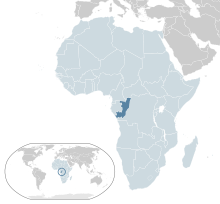Nowadays, 1972 Republic of the Congo coup attempt is a theme that has captured the attention of people all over the world. Whether because of its relevance in today's society, its impact on people's lives, or its role in history, 1972 Republic of the Congo coup attempt has generated constant debate and sparked the interest of researchers, experts, and ordinary people alike. In this article, we will explore the topic of 1972 Republic of the Congo coup attempt in depth, analyzing its different facets, its implications in society and its relevance in today's world. Through an enriching and detailed approach, we will seek to better understand what 1972 Republic of the Congo coup attempt is, why it is important and how it influences our daily lives.
| 1972 People's Republic of the Congo coup d'état attempt | |||||||
|---|---|---|---|---|---|---|---|
| Part of the Cold War | |||||||
 | |||||||
| |||||||
| Belligerents | |||||||
|
| Pro-Ange Diawara faction | ||||||
On February 22, 1972 a faction loyal to Ange Diawara attempted a coup against President Marien Ngouabi. Joachim Yhombi-Opango was instrumental in ending the coup. The musician Franklin Boukaka was killed in the coup, as was former Minister Élie Théophile Itsihou. After more than a year of evading capture Diawara was ambushed and killed in April 1973 by forces loyal to Ngouabi.
References
- ^ a b Lentz, Harris M. (2013). Heads of States and Governments Since 1945 (3rd Edition). Routledge. p. 193. ISBN 1-884964-44-3.
- ^ "Mfumu" (5 March 2015). "Franklin Boukaka". adiac-congo.com (in French). Retrieved 23 October 2020.
- ^ Clark, John Frank; Samuel Decalo (2012). Historical Dictionary of Republic of the Congo (Fourth Edition). Scarecrow Press. p. 122. ISBN 978-0-8108-4919-8.